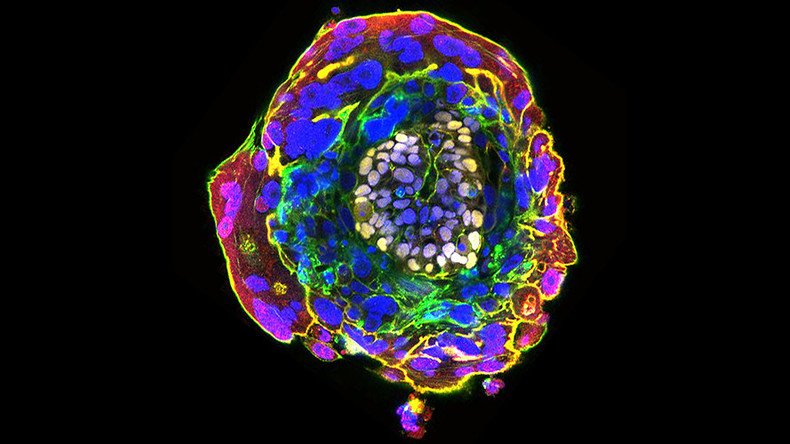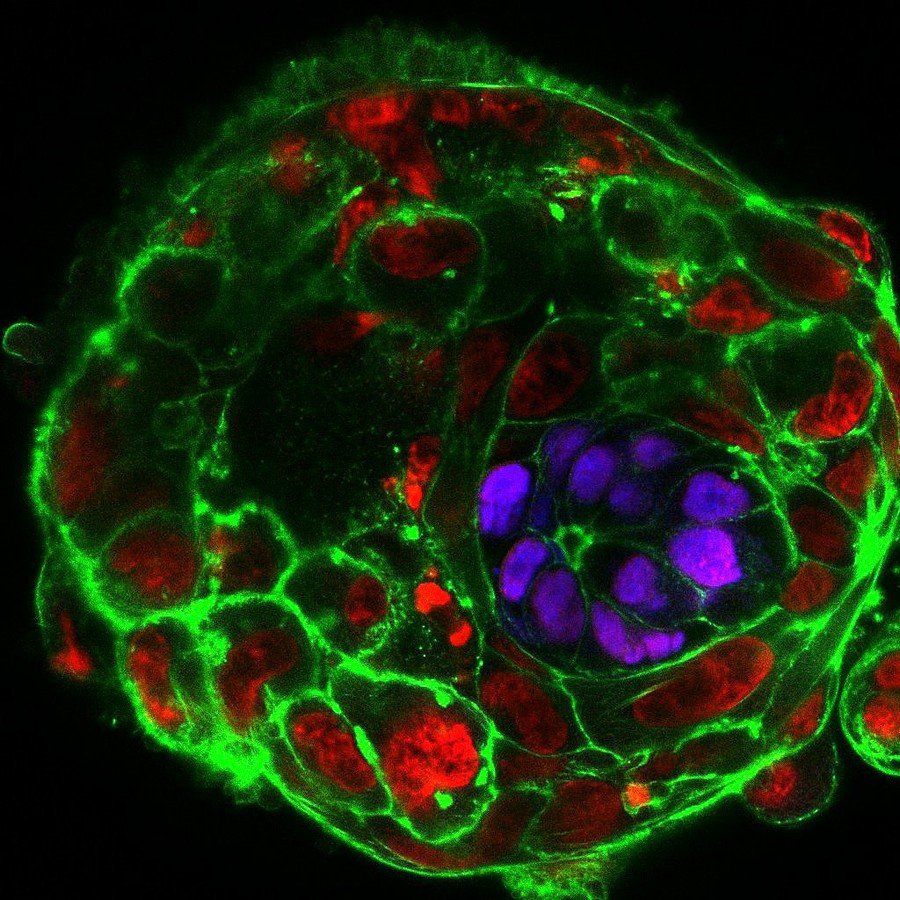13-day-old human embryo grown in lab for controversial record-breaking study

Our understanding of how the human fetus develops could be shattered, as UK and US scientists have developed a new technique enabling an embryo to live outside the womb far longer than before, but future experiments will be fraught with ethical issues.
The previous record for an embryo surviving in a lab was 9 days, and usually the embryo would be implanted into a womb as in IVF in the first seven, or die.
However, two leading labs, which have published their studies in Nature and Nature Cell Biology, managed to create a chemical environment that tricked the embryo into thinking it was already in a womb while it remained in a petri dish. The embryos flourished until day 13, when they were terminated by the scientists to avoid contravening guidelines in both the US and the UK that forbid scientific experiments on human fetuses over two weeks old.
“This new technique provides us with a unique opportunity to get a deeper understanding of our own development during these crucial stages and help us understand what happens, for example, during miscarriage,” said Magdalena Zernicka-Goetz, a developmental biologist at the University of Cambridge, who led the UK team.
“Implantation is a milestone in human development as it is from this stage onwards that the embryo really begins to take shape and the overall body plans are decided. It is also the stage of pregnancy at which many developmental defects can become acquired. But until now, it has been impossible to study this in human embryos,” she continued.
Ali Brivanlou, a biologist at Rockefeller University in New York City, who headed the parallel US research group, said, “It’s really embarrassing at the beginning of the twenty-first century that we know more about fish and mice and frogs than we know about ourselves.”
During the course of their research, both teams found a mystery cell cluster that appeared on day 10 of development and disappeared on day 12, suggesting that a previously unknown biological process was taking place.
“Significant differences” were found in the developmental cycles of mice, which are often used as stand-ins for humans in laboratory research.
Ethical debate rekindled
While it is hard to deny the scientific benefits of the experiment, the teams brushed up against a 14-day experiment deadline, which was adopted in the US in 1979 due to ethical reasons. However, they reached that limit long before the point ethical issues would become a practical concern, when the clusters of cells stop merging and splitting and become distinct individual entities that eventually grow into a human fetus.
“Given the potential benefits of new research in infertility, improving assisted conception methods, and in early miscarriage and disorders of pregnancy, there may be a case in the future to reconsider the 14-day limit,” Daniel Brison from the University of Manchester told BBC.
“In my opinion, there has been a case to allow culture beyond 14 days even before these papers appeared,” said Azim Surani from the Gurdon Institute.

Others have expressed their concern, however.
“The 14-day rule has kept it pretty limited in terms of what scientists could do. Once that goes, then it begins to sort of say: ‘It’s open season on human embryos. Anything goes,’ Daniel Sulmasy, a doctor and bioethicist at the University of Chicago, told NPR. “The question has to be: ‘Are there any limits to what we will do to human beings in order to gain scientific knowledge?’ And then who counts as a human being?”
Zernicka-Goetz said that even a few extra days of development could bring huge discoveries, though she said she wouldn’t lobby to overturn the current limitations.
Technologically, the hormonal and nutritional demands of the embryo would grow immensely more complicated within a longer experiment, and there is no certainty that scientists would be able to simulate them successfully.
Nonetheless, the Nuffield Council of Bioethics, the UK body which decides on contentious scientific research, has already stated that it will independently review the current experiment limits.
For the moment, however, researchers say that even the current restrictions can accommodate an entirely new field of research.
“We will learn things we cannot even imagine,” said Brinvalou. “It’s as if you say: ‘If I look at new sets of Hubble Space Telescope pictures that I haven’t seen yet, what will I learn from them?’ It’s difficult to say until you look at them.”













